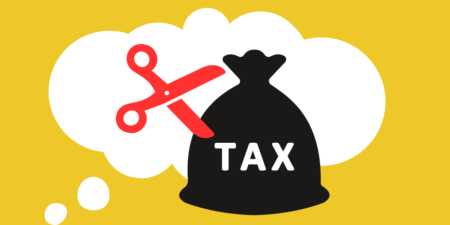On February 27, the Australian Government passed its amended stage 3 tax cuts. In celebrating their victory, the Prime Minister stated that the cuts were “a good result for all Australian taxpayers”.
The previous Government made similar claims when it announced its earlier version of the tax cuts back in 2019. The Treasurer at the time said that “taxpayers earning up to $126,000 a year” would receive a tax cut.
Who’s missing from both of these statements? People earning below the tax-free threshold. In both versions of the tax cuts, anyone on a pension, or anyone earning below $18,200 a year receives nothing. Importantly though, they are still taxpayers. They pay the Goods and Services Tax (GST) on many of their day-to-day expenses.
Not all tax is income tax
For either statement to be true, it would need to include the word income. Sure, the legislation may give a tax cut to everyone who pays tax on their income, but not all tax is income tax. Therefore, not all taxpayers are income taxpayers.
As these quotes from the Prime Minister and the former Treasurer show, when politicians talk about ‘taxpayers’, they’re usually only talking about people who pay tax on their incomes.
This is a common (and sneaky) trick of language. On the one hand, it seems to be inclusive. On the other hand, it still leaves out a segment of the population who get nothing from the tax cuts, despite paying a good chunk of their money on GST.
Why GST hits people on low incomes hardest
GST was introduced in 2000. It’s a flat 10% tax on most goods and services, with a few items like fresh food, medical expenses, housing and education being exempt. Since its introduction, politicians, economists and commentators have repeatedly floated the idea of increasing it, getting rid of the exemptions or both.
This has never happened, in part because it’s unpopular, but also because reforming GST requires unanimous approval from the states before it gets through the Australian parliament.
Good thing too, because whilst income tax is a progressive tax (one that costs more for people on higher incomes who can afford to pay more), GST is a regressive tax. This means it has a higher cost for people who are least able to afford it.
The reason for this is that people on lower incomes have to spend a larger proportion of their money on goods and services, and a lot of the things they have to buy (like clothing, most foods, petrol or transport fares) cost 10% more because of GST.
On the other hand, not only do people on higher incomes spend less of their total income on these items, many of the other things they buy (like stocks or property) are GST-free.
Whilst neither major party seems interested in scrapping this unfair tax, at least they seem unwilling to increase it. However, if the Australian Government is cutting income taxes, they should also increase the pension supplement to reduce the cost of GST on pensioners.
